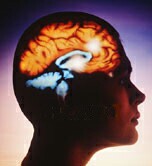Increased anxiety, depression linked to increased severity of retrosternal pain and heartburn
FRIDAY, June 5, 2015 (HealthDay News) — Anxiety and depression are linked to increased severity of retrosternal pain and heartburn and reduced quality of life among patients with gastroesophageal reflux disease (GERD), according to a study published in the June issue of Clinical Gastroenterology and Hepatology.
Boudewijn F. Kessing, M.D., from the Academic Medical Center Amsterdam, and colleagues conducted a prospective study involving 225 patients who underwent evaluation of GERD symptoms. The authors assessed the effect of anxiety and depression on GERD symptoms.
The researchers diagnosed GERD in 147 patients, while 78 had functional heartburn. Thirty-six patients were found to be hypersensitive to gastroesophageal reflux. Increased levels of anxiety correlated with more severe retrosternal pain and retrosternal burning among patients with GERD. There were also correlations for increased levels of anxiety and depression with lower scores of the mental component of the quality of life questionnaire. There was no association for levels of anxiety or depression with the number of reflux symptoms reported during 24-hour pH impedance monitoring or with the number of symptoms associated with a reflux event. Levels of anxiety and depression and decreases in quality of life were similar for GERD patients with hypersensitivity to reflux.
“In patients with GERD, increased levels of anxiety are associated with increased severity of retrosternal pain and heartburn and reduced quality of life,” the authors write.
One author disclosed financial ties to the pharmaceutical industry.
Copyright © 2015 HealthDay. All rights reserved.








